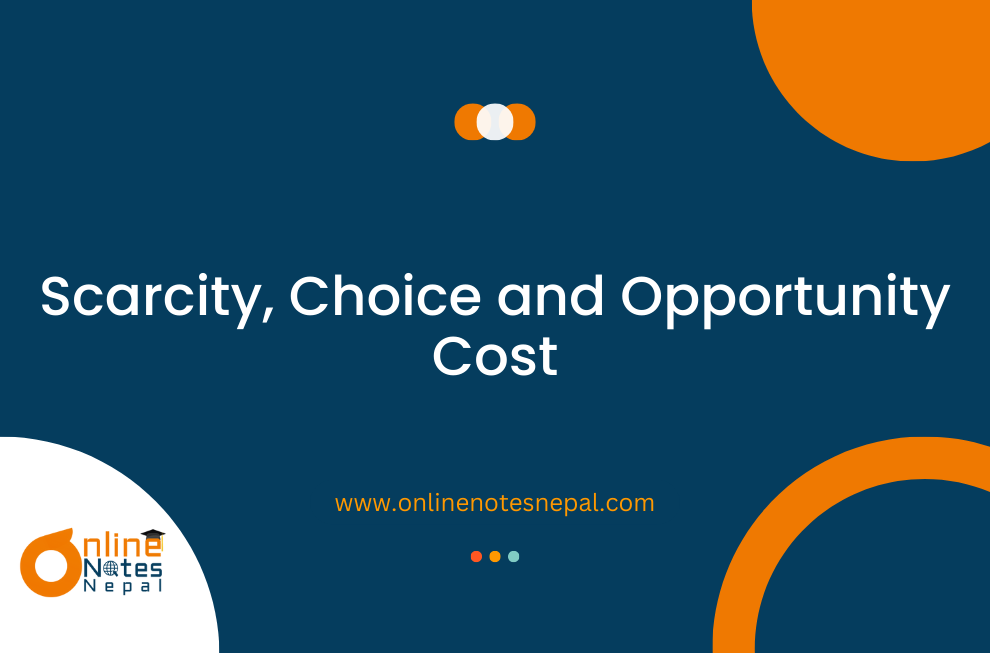Published by: Sayuja Koirala
Published date: 26 Jul 2024

The concept of scarcity and choice was introduced by British economist Lionel Robbins in 1932. Both scarcity and choice are major issues in economics. All choices mean that one alternative is selected over another. Selecting alternatives involves three ideas central to economics: scarcity, choice, and opportunity cost.
Scarcity is a state where the demand for a good is more than its supply in the market. In another sense, scarcity refers to the unavailability (not easily found) in the market of a certain commodity. But in an economic sense, a commodity is scarce, not because it is rare or unavailable in the market but because the means to have it are limited. We have limited resources at our disposal. So, there is a problem of scarcity.
During the holiday season, a newly released toy becomes a huge success. The producer did not foresee the huge demand, thus there are insufficient toys to match consumer demand. As a result, prices for the toy on secondary markets (such as online auction sites) may rise. Parents and gift-givers may have to select alternate gifts or wait for the next batch of toys to be manufactured after the holidays.
The choice is the act of selecting a few goods or quantities among the bundles of goods. In other words, it is the process of selecting a few wants from the bundles of wants. So, choice means the allocation of income to the purchase of different goods and services in a manner such that he maximizes his satisfaction. Because resources are limited, we must determine which desires will be met and which will not over a certain time. Maximum satisfaction may be gained by making optimal use of existing resources. Prioritizing our wants is necessary. The most pressing need should be met first.
A customer deliberating between purchasing a new smartphone and saving for a vacation demonstrates the fundamental trade-offs in economic decisions. The opportunity cost of selecting one option over the other is the value of forgoing the next best alternative.
Opportunity cost is the value of the best alternative forgone in making any choice. The opportunity cost to you of reading the remainder of this chapter will be the value of the best other use to which you could have put your time. In other words, Opportunity cost is the value of the next best alternative when a decision is made.
If you choose to spend $20 on a potted plant, you have simultaneously chosen to give up the benefits of spending the $20 on pizzas a paperback book or a night at the movies. If the book is the most valuable of those alternatives, then the opportunity cost of the plant is the value of the enjoyment you otherwise expected to receive from the book.